When was the last time you lost your voice? Were you ever worried it might not come back? It happens sometimes for a variety of reasons –– trauma, stroke, tumor. People who use their voices for a living or who shout or scream frequently are at particular risk. An SLP may be able to help.
An SLP is a Speech Language Pathologist. They can diagnose voice problems and sometimes develop plans for repair. It’s important work, but it’s not all SLP’s do.
SLP’s evaluate, diagnose and work with children and adults who have difficulty hearing, learning, articulating and processing information. They work with those who have autism, Alzheimer’s, and Parkinson’s. And they usually are part of a team of specialists that include occupational therapists, physical therapists, physicians, nutritionists and social workers. And they’re highly educated.
Kari Bulthuis is an SLP. She works on the Essentia Health inpatient medical rehabilitation unit with patients who have experienced a variety of traumatic life events including spinal cord injuries, traumatic brain injuries, strokes, or other medical issues. The Miller-Dwan Foundation supports her work.
Bulthuis’s patients run the gamut from the littlest kiddos to those who have lived life to the fullest and would be considered our geriatric patients. Bulthuis says, “The very best part of my job is seeing patients succeed. I experience moments daily that remind me of how blessed I am to help others during the most challenging of days.” She thinks of those moments ––Being a part of the moment when a child can say, ‘Hi Mom,’ for the first time in weeks by using a speaking valve; giving an elderly gentleman his first cup of ‘real coffee’ since his stroke; a patient telling me they were able to return to work; or having a very little patient (who couldn’t speak or swallow after his accident) tell me about his recent adventures.”
“There are days that we as therapists grieve alongside our patients and carry the burden of their sadness, “says Bulthuis, “but also so many days we celebrate the joy in their successes and newfound independence.”
Bultuis feels incredibly lucky to have Miller-Dwan Foundation support. “Seeing progress made and lives restored is a gift and I am very grateful to be a part of it.”
To learn more about the speech language innovations at Polinsky Medical Rehabilitation Center, click here.

